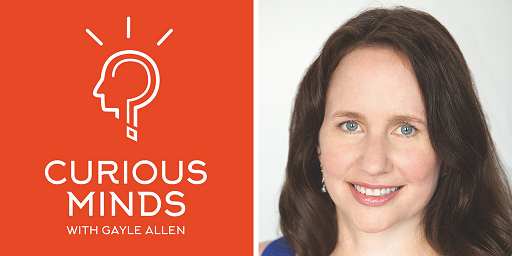I have driven to work with Gayle Allen many, many times but we have never met.
Gayle is creator and host of Curious Minds, the “leading podcast on innovation that features global leaders rethinking life and work.” Curious Minds is part of my drive time learning. Gayle has an education background that I would suggest influences her interview style, a style that resonates with me. We catch up on Twitter every once in a while… and I regularly recommend her podcast. Who knows, one day we may cross paths.
This morning, it was Heidi Grant (Chief Science Officer of the NeuroLeadership Institute and Associate Director of the Motivation Science Center at Columbia University) and the Science of Asking for Help.
On my way to work with @GAllenTC – worthwhile listen for leaders who invariably need to source goodwill or help. https://t.co/aFApPJamd4
— Kristian Still (@KristianStill) July 17, 2018
Which school leader doesn’t need to source goodwill or help? Which leader wouldn’t benefit from being more successful in relinquishing discretionary effort?
First we learnt that we, as humans, are sensitive to being turned down when asking for help. Second, that we underestimate our chances of securing help (in fact we underestimate by about half).
Lesson learnt – you can afford to be more resilient and more hopeful of success when asking for that help.Second, a note to self, to be more sympathetic when asked for help. We are wired to helping others, it feeds into a desire to connect and feel good about supporting someone else in their work (we also note links to oxytocin).
Heidi offers some suggestions on how to be successful when seeking help. To avoid receiving “no,” and “yes, but I don’t want to because I have to” responses.
- Avoid being overly apologetic for asking for help – it makes the helper feel uncomfortable and robs them of the satisfaction of helping
- Offering a reward makes the helping feel transactional, again robs them of the satisfaction of helping
The first refutation does not always mean it will be a “no” next time.
What you want to aim for is
Yes, and I want to and it feels rewarding.
I learnt about “The illusion of transparency” – that we tend to perceive, or think of ourselves, as transparent, as “open-books.” In fact, that is rarely the case. We are hard to read.
Lesson learnt – You need to let people know, that it is their responsibility to ask for help – that we will not necessarily know that they need help. Give them permission to seek you out (this connects with underestimating the likelihood of receiving help). If you sense you are about to say, “it goes without saying,” – then ironically, it needs to be said.
I learnt about the “diffusions of responsibility,” – that the more people there are that could help, the less likely it is, that any one will help. The example Heidi offers is the multi-recipient, help seeking email. All too common in school. Potentially helpers are more inclined to do so if they’re aware of the impact they’ll be having, that the task is concrete. Potential helpers will defer, if they think they may end up offering bad help.
Lesson Learnt – Send the emails via the BCC (received as a single, personal email), with concrete specifics, as to the help required, and why the recipient is best place to help. If there is a common in-group identity, or common goals or experiences, reinforce them.
Lastly, once helped has been discretionarily dispensed, “promote the sense of effectiveness.” Share with colleagues the impact the help accrued.
Back in March-April, two of our staff, supported another school at the bequest of the Head. This past week, that same Headteacher dropped us an email sharing their successes in their recent Key Stage 2 results, noting the impact made by the staff during that visit. Will we be likely to offer help in the future… of course.
Episode #109 of Curious Minds, Gayle Allen and Heidi Grant, have seeded a few ideas, that may just make me a more effective leader. Win-win-win.


